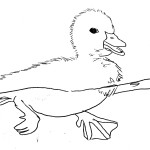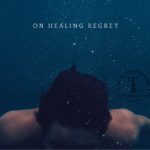Premature Ovarian Failure no longer bears that name. It’s not a failure anymore, but an insufficiency. POF becomes POI: Premature Ovarian Insufficiency, as insufficiency is apparently a softer term than “failure”. For me, it’s another telling example of how our society fears the names of things, and twists itself into knots of nomenclature and terminology rather than facing pain head-on. In this case, the pain is derived from the simple fact that the ovaries do not respond to hormones, that they for some reason die at an early age and cause menopause to arrive decades before it’s due, leading to infertility and risk of early osteoporosis.
Insufficiency, for me at least, fails to appease the sensitivity required for naming a problem. It reminds me of a three-tiered scoring system: exceeds expectations, meets expectations, insufficient performance. These reproductive cells have not been up to task. They’ve proven to be insufficient and, in the end, we’ve labelled them failures anyway—premature ovarian disappointments. Our disdain for the bodies we inhabit often becomes apparent in medical jargon.
What expectations do we have for our organs, really? For most of us that they’ll keep quiet while we drink, stay up late and eat what we like, not that they will protest, stop our periods, make us itch or remind us that we are physical beings that belong here, to this earth, that we can sputter and shut down and end up curb side while we wait for white coats to assist us. Our organs are not supposed to remind us of our fragile mortality. When it comes to expectations overall, I wonder how many of them we have a right to.
In one week I had two patients presenting with failures of sorts. With one it was her ovaries, in another it was his kidneys, first his left, now his right. Both of them were coming to me, perhaps years too late, for a style of medicine whose power lies mainly in prevention or in stopping the ball rolling down the hill before it gains momentum. When disease processes have reached their endpoint, when there is talk of transplant lists and freezing eggs, I wonder what more herbs can do.
And so, when organs fail, I fear that I will too.
In times of failure, we often lose hope. However, my patients who have booked appointments embody a hope I do not feel myself, a hope I slightly resent. In hope there is vulnerability, there is an implicit cry for help, a trust. These patients are paying me to “give them a second opinion”, they say, or a “second truth”.
I feel frustration bubble to the surface when I pore over the information I need to manage their cases. At the medical system: “why couldn’t they give these patients a straight answer? Why don’t we have more information to help them?” At my training: “Why did we never learn how to treat ovarian insufficiency?” At the patients themselves: “Why didn’t he come see me earlier, when his diabetes was first diagnosed?” And again at the system: “Why do doctors leave out so much of the story when it comes to prevention, to patient power, to the autonomy we all have over our bodies and their health?” And to society at large: “Why is naturopathic medicine a last resort? Why is it expensive? Why are we seen as a last hope, when all but the patients’ hope remains?”
Insufficiency, of course, means things aren’t enough.
I feel powerless.
There is information out there. I put together a convincing plan for my patient with kidney failure. It will take a lot of work on his part. What will get us there is a commitment to health. It may not save his kidneys but he’ll be all the better for it. My hope starts to grow as I empower myself with information, studies some benevolent scientists have done on vitamin D and medicinal mushrooms. Bless them and their foresight.
As my hope grows, his must have faded, because he fails to show for the appointment. I feel angry, sad and slightly abandoned—we were supposed to heal together. Feelings of failure are sticky, of course, and I wonder what story took hold of him. was it one that ended with, “this is too hard?” or “there is no use?” or “listen to the doctors whose white coats convey a certainty that looks good on them?”
A friend once told me, the earlier someone rejects you, the less it says about you. I know he’s never met me and it’s not personal, but I take it personally anyways, just as I took it personally to research his case, working with a healing relationship that, for me, had been established since I entered his name in my calendar. In some way, like his kidneys, I’ve failed him. Since we’re all body parts anyways, how does one begin to trust another if his own organs start to shut down inside of him? Why would the organs in my body serve him any better than the failing ones in his?
I get honest with my patient whose ovaries are deemed insufficient (insufficient for what? We don’t exactly know). I tell her there aren’t a lot of clear solutions, that most of us don’t know what to do–in the conventional world, the answer lies mainly in estrogen replacement and preserving bone health. I tell her I don’t know what will happen, but I trust our medicine. I trust the herbs, the homeopathics, nutrition and the body’s healing processes. I admit my insufficiency as a doctor is no less than that of her ovaries, but I am willing to give her my knowledge if she is willing to head down this path to healing with me. Who knows what we’ll find, I tell her, it might be nothing. It might be something else.
It takes a brave patient to accept an invitation like the one above; she was offered a red pill or a blue pill and took a teaspoon of herbal tincture instead. I commend her for that.
There aren’t guarantees in medicine but we all want the illusion that there are. We all want to participate in the game of white coats and stethoscopes and believe these people have a godlike power contained in books that allows them to hover instruments over our bodies and make things alright again. Physicians lean over exposed abdomens, percussing, hemming and hawing and give us labels we don’t understand. The power of their words is enough to condemn us to lives without children, or days spent hooked up to dialysis machines. We all play into this illusory game. They tell us pills are enough… until they aren’t. This is the biggest farce of all.
I can’t participate in this facade, but I don’t want to rob my patient of the opportunity for a miracle, either. We share a moment in the humility of my honesty and admission of uncertainty. I know my patients pay me to say, “I can fix it.” I can try, but to assert that without any degree of humility would be a lie. How can one possibly heal in the presence of inauthenticity? How can one attempt to work with bodies if they don’t respect the uncertain, the unknown and the mysterious truths they contain? In healing there is always a tension between grasping hope and giving in to trust and honestly confessing the vulnerability of, “I don’t know.”
For my patient I also request some testing—one thing about spending time on patients’ cases and being medically trained is that you get access to information and the language to understand it. I notice holes in the process that slapped her with this life-changing diagnosis.
When her labs come back, we find she might not have ovarian insufficiency after all. Doorways to hope open up and lead us to rooms full of questions. There are pieces of the story that don’t yet fit the lab results. I give her a list of more tests to get and she thanks me. I haven’t fixed her yet, but I’ve given her hope soil in which to flower. I’ve sent her on a path to more investigations, to more answers. And, thanks to more information in the tests, I’ve freed her and her ovaries from the label of “failure” and “insufficient” and realized that, as a doctor, I can free myself of those labels too. The trick is in admitting, as the lab results have done in their honest simplicity, what we don’t know.
For the moment, admitting insufficiency might prove to be sufficient in the end.







I believe doctors these days are so packed with patients that they don’t really have the time to fully diagnose people because of their time constraints, or maybe its simply because the time they take is just that… TIME. Time that may cut into their day that they should have to wind down. A doctors day is busy and sometimes there just isn’t enough time. Even if there were more time they may not want to take it… I think there are less doctors like you who truly care!